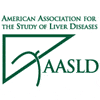 Achieving a cure for hepatitis C virus (HCV) through interferon-based treatment reduces the risk of death, liver cancer and needing a liver transplant, HIVandHepatitis.com reports. Researchers conducted a meta-analysis of data culled from 34,563 people who received interferon-based treatment for hep C—with regimens that typically constituted that drug plus ribavirin. Results were presented at the Annual Meeting of the American Association for the Study of Liver Diseases (AASLD) in Boston.
Achieving a cure for hepatitis C virus (HCV) through interferon-based treatment reduces the risk of death, liver cancer and needing a liver transplant, HIVandHepatitis.com reports. Researchers conducted a meta-analysis of data culled from 34,563 people who received interferon-based treatment for hep C—with regimens that typically constituted that drug plus ribavirin. Results were presented at the Annual Meeting of the American Association for the Study of Liver Diseases (AASLD) in Boston.
The investigators found that achieving a sustained virologic response, which is considered a cure, was linked to a 62 percent to 84 percent reduction in the risk of death from any cause, a 68 percent to 79 percent drop in the risk of developing hepatocellular carcinoma (HCC, the most common form of liver cancer), and a 90 percent reduction in liver transplantation.
Just 0.9 percent of those considered low risk who were cured were reinfected with HCV. This figure rose to 8.2 percent among higher-risk prisoners and injection drug users (IDUs). For those coinfected with HIV and HCV, the reinfection rate was 23.6 percent. Many of the coinfected individuals who were reinfected were men who have sex with men, which could indicate that they had re-contracted hep C sexually. However, the highest rate of reinfection among coinfected people occurred among IDUs.
The study’s findings are limited by the fact that they mostly involved the old standard of care for hep C treatment. In theory, the advanced treatments available today would offer superior benefits.
To read the HIVandHepatitis.com story, click here.
Advertisement
Advertisement
Advertisement






1 Comment
1 Comment